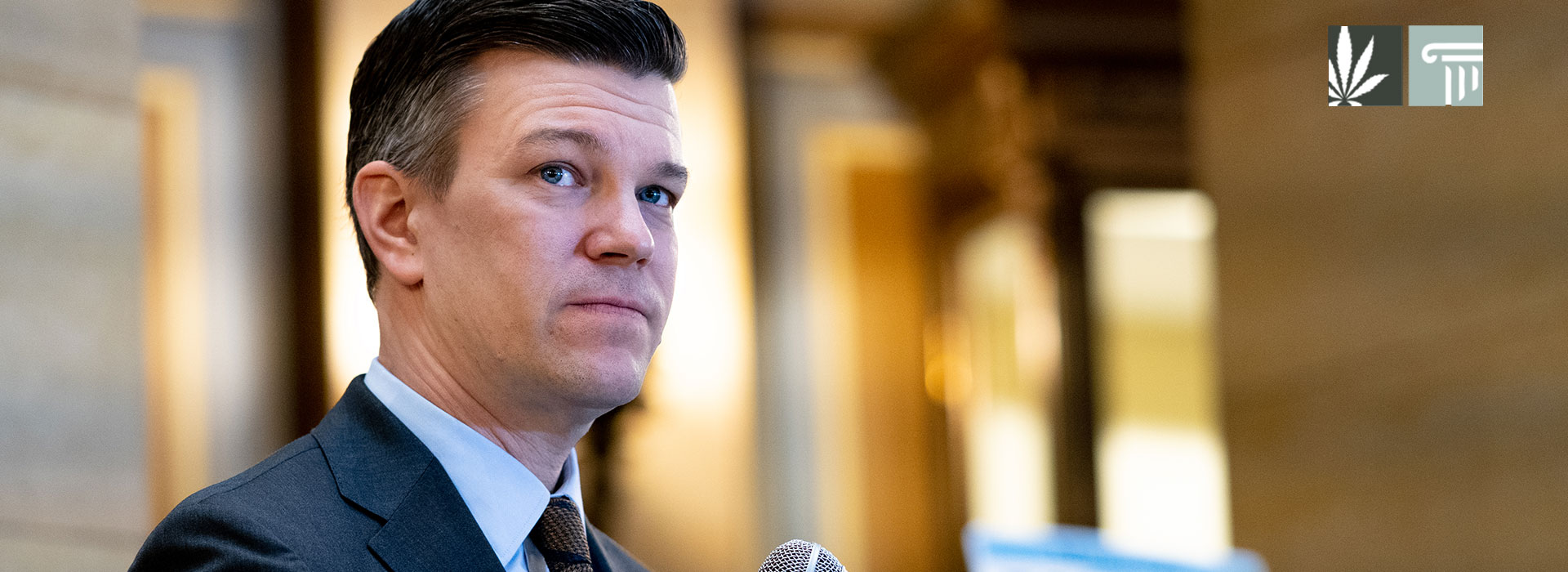Minnesota lawmakers approved a broad health bill containing various marijuana-related provisions that would significantly expand the state’s medical cannabis program, including the legalization of smokable flower.
The omnibus health legislation was cleared by a bicameral conference committee before gaining the approval of the House in a 77-57 vote. The Senate then swiftly passed the measure with a resounding 66-1 vote. The bill now heads to the desk of Gov. Tim Walz (D), who’s widely expected to sign it into law.
The measure would take effect from July 1, 2021, and would permit qualifying patients 21 and older to smoke marijuana by March 1, 2022, at the latest. However, if the new rules are in place and authorized by Minnesota’s cannabis commissioner, this could happen earlier. Other medical marijuana-related provisions in the health bill include one allowing for curbside pickups at dispensaries, as well as an increase in the number of patients a designated caregiver can tend to from one to six.
House Majority Leader Ryan Winkler (D) welcomed the bill’s passage as some kind of compromise on the part of the GOP controlled Senate, which is unlikely to act this legislative session on a broader marijuana legalization measure sponsored by Winkler that recently cleared the House.
“Over the course of 12 public hearings this year and a statewide tour visiting 15 communities, Minnesotans were loud and clear that our state’s medical cannabis program was too expensive, and that allowing flower could significantly improve access,” Winkler said in a press statement.
“As a result of Minnesotans who made their voices heard over the course of years—whether you are a veteran suffering from PTSD, a person with a serious health condition, or a parent with a sick child—more people will gain the ability to live healthy, fulfilled lives,” he said. “Without Minnesotans’ activism and personal stories, and without a historic vote in the Minnesota House to legalize cannabis for adult use, this accomplishment would not have been possible.”
One potentially troubling provision in the health bill would allow the public to petition the cannabis commissioner to remove conditions from the list that qualifies for medical cannabis treatment, while conditions could only be added or modified at the commissioner’s discretion.
Nonetheless, Minnesota marijuana reform advocates hailed the measure’s passage as a positive step and echoed Winkler’s claim that progress on full legalization in the House helped tip the balance in favor of medical cannabis reforms.
“Quite contrary to the claim of some GOP members that reforms to the state’s restrictive medical cannabis program are the ‘backdoor’ to full legalization, the adult-use bill helped open the front door this session for the sorely needed reforms patient advocates have been working toward for years,” said Leili Fatehi, campaign manager for Minnesotans for Responsible Marijuana Regulation.
Winkler first filed his marijuana legalization bill last year and described it at the time as “the best legalization bill in the country.”
The legislation contains a range of social equity provisions, allows for on-site cannabis consumption lounges and automatic expungement of prior marijuana offenses, and seeks to prevent market monopolization by large economic actors.
Minnesota is one of only a few states with medical marijuana programs that doesn’t allow patients to smoke cannabis. Like Minnesota, Louisiana is also considering reform, with a bill to permit access to smokable marijuana recently passing the House and now set for a full floor vote in the Senate. Meanwhile, the governor of Alabama just signed off on a medical marijuana legalization bill that continues to prohibit smokable cannabis.






